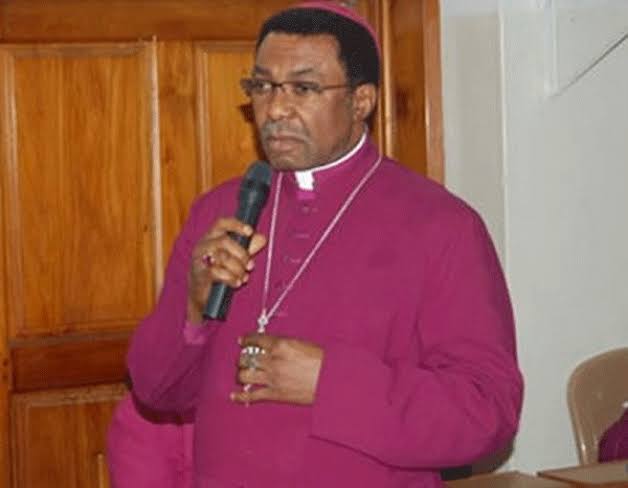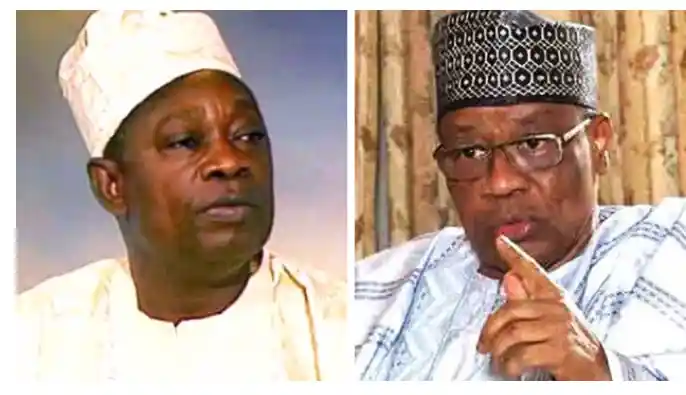Former Nigerian military leader General Ibrahim Babangida (rtd.) has sparked controversy with his recent confession about the annulment of the June 12, 1993, presidential election. In his autobiography, Babangida admitted that late business mogul and politician, Chief Moshood Kashimawo Olawale (MKO) Abiola, won the election. However, his statement has been met with backlash from political figures, activists, and religious leaders, including Most Rev. Emmanuel Chukwuma, the retired Archbishop of the Enugu Province (Anglican Communion).
Chukwuma condemned Babangida’s remarks, describing them as an insult to Nigerians. He also called for the posthumous recognition of Professor Humphrey Nwosu, the chairman of the National Electoral Commission (NEC) who conducted the election but was never honored for his role.
This renewed debate over the events of June 12 highlights the lingering pain and unresolved issues surrounding one of Nigeria’s most significant political crises.
Archbishop Chukwuma Condemns Babangida’s Remarks
Speaking in Enugu, Archbishop Chukwuma dismissed Babangida’s confession as unacceptable and offensive. He insisted that Nigerians should not accept such a belated admission after decades of suffering caused by the annulment.
“Babangida’s Confession is Absolute Rubbish”
Chukwuma did not mince words when addressing Babangida’s statement. He expressed disappointment that the former military ruler waited this long to acknowledge Abiola’s victory but failed to take responsibility for the consequences of his actions.

All that Babangida said in his book, regretting or confessing that MKO Abiola won the June 12 election, is absolute rubbish! It is a great disappointment and an insult to Nigerians. If I had my way, IBB should be jailed for making such a statement after taking the entire country for a ride.”
The cleric further accused Babangida of deliberately misleading the nation, calling his justification for annulling the election “falsehood” and emphasizing that Nigerians are still suffering from the effects of bad leadership.
“Nigerians are suffering today because of bad leadership, and we still cannot conduct a credible election. Babangida’s confession comes too late—after the deaths of Abiola and Nwosu. He must apologize to their families and to the Nigerian people.”
Call for Posthumous Honor for Prof. Humphrey Nwosu
Apart from criticizing Babangida, Chukwuma also raised concerns about the lack of national recognition for Professor Humphrey Nwosu, the electoral commission chairman who oversaw the June 12 election.
Nwosu passed away on October 24, 2024, and is set to be buried on March 28, 2025. Despite conducting what many regard as Nigeria’s fairest election, he was never officially honored, unlike Abiola and his running mate, Babagana Kingibe, who received national recognition.
“Nigeria Has Been Unfair to Humphrey Nwosu”
Chukwuma strongly criticized the government’s failure to acknowledge Nwosu’s contributions.
“Now, Humphrey Nwosu is dead, and it has been acknowledged that he conducted Nigeria’s most credible election, yet no national honor was given to him. Kingibe was honored, Abiola was honored, but the man who conducted the election was ignored. Nigeria has been unfair to Humphrey Nwosu.”
The retired Archbishop urged the federal government to name a national monument after Nwosu and ensure that his role in Nigeria’s democratic history is recognized. He also called for government representation at Nwosu’s burial as a mark of respect.
Reactions to Babangida’s June 12 Confession
Babangida’s statement has reignited the debate over his role in truncating Nigeria’s democracy in 1993. Many Nigerians, including activists, politicians, and historians, have criticized him for waiting decades before admitting what was already widely known.
Why Did Babangida Annul the June 12 Election?
The June 12, 1993, election was widely regarded as free and fair. However, Babangida annulled it, citing security concerns and pressure from the military elite. His decision led to mass protests, political instability, and the eventual imprisonment and death of MKO Abiola.
Although Babangida has consistently defended his actions, his confession that Abiola won the election contradicts his previous justifications. Many see this as a failed attempt to rewrite history and escape accountability.
The Public Outrage
- Pro-democracy activists have dismissed Babangida’s statement, saying it is too little, too late.
- Human rights groups argue that Babangida should face legal consequences for his role in the annulment.
- Political analysts believe his confession is an attempt to influence how history judges him.
The Lingering Impact of June 12 on Nigeria’s Democracy
Political Consequences
The annulment of the June 12 election set Nigeria back in its democratic journey. It led to:
- The Rise of Military Rule: Following the crisis, General Sani Abacha took over in 1993, ushering in one of Nigeria’s most brutal military dictatorships.
- The Death of Abiola: Abiola, who declared himself president in 1994, was arrested and died in detention in 1998 under mysterious circumstances.
- Delayed Democratic Transition: Nigeria did not return to democracy until 1999, six years after the annulment.
The Ongoing Struggle for Electoral Credibility
Even in 2025, Nigeria continues to grapple with issues of election rigging, voter suppression, and lack of transparency in its electoral process. Many believe that had June 12 been allowed to stand, Nigeria’s democratic institutions would be stronger today.
Should Babangida Face Prosecution?
Archbishop Chukwuma and many others believe that Babangida should be held accountable for his actions. The question is: Is there a legal basis to prosecute him now?
Possible Legal Grounds
- Crimes Against Democracy: Some argue that annulling a free and fair election was an act of treason.
- Human Rights Violations: The annulment led to the deaths of pro-democracy activists, including Abiola.
- Abuse of Power: Babangida ruled by military decree and suppressed dissent during his regime.
Challenges to Prosecution
- Statute of Limitations: Many of the events occurred over 30 years ago, making prosecution difficult.
- Political Protection: Babangida still holds influence in Nigeria’s political and military circles.
- Lack of Political Will: No Nigerian leader has seriously attempted to bring him to justice.
Conclusion: A Controversy That Won’t Go Away
Babangida’s confession has reopened old wounds and reinforced public frustration over the lack of justice for the June 12 election annulment. Archbishop Chukwuma’s strong condemnation reflects the sentiment of many Nigerians who feel betrayed by Babangida’s actions and his late acknowledgment of the truth.
While the Nigerian government has honored Abiola and Kingibe, Professor Humphrey Nwosu remains unrecognized, despite his role in conducting the election. Calls for a posthumous national honor for him are growing louder.
Ultimately, the June 12 issue remains unresolved, and until there is full accountability, Nigerians will continue to demand justice for what many see as the greatest betrayal of democracy in the nation’s history.
What Do You Think?
- Should Babangida be prosecuted for annulling the June 12 election?
- Should Professor Humphrey Nwosu be honored posthumously?
- Has Nigeria truly moved past the effects of the annulment?
Let us know your thoughts!






